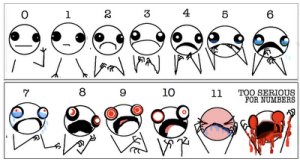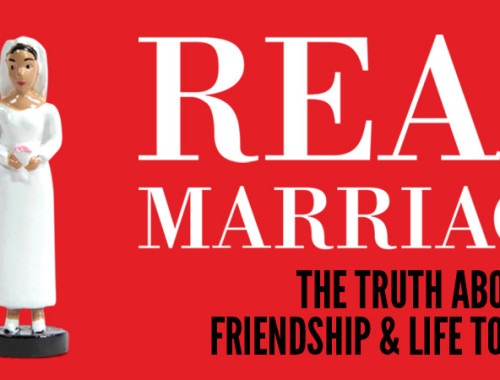
[Hyperbole and a Half‘s “Pain Scale“]
After I’d been removed from the stifling atmosphere of my church, after I got out of the controlling relationship with John*, and after I’d graduated from the fundamentalist college that continuously reinforced all of those lessons, I was left without any real means of understanding or productively engaging with my emotions. The only message I’d successfully heard and absorbed was that being emotionless was the ideal for a woman. The only response I’d learned toward my emotions was to suppress them in an attempt to “rule my spirit.”
Almost three years after I graduated, I was finally in counseling. During the first time I spoke with her, in her mint-green office with the wingback chairs, she opened her Bible to the Psalms and asked me if I minded reading one.
I shifted in my chair, my nervousness and discomfort rising. I stared at the floor, and tried to figure out what to say. Reading a psalm… out loud? The whole idea was distasteful. I gave a quick shake of my head.
“Do you mind if I read one, then?”
I met her eyes, and something about her prompted me to be honest. “I don’t really care for the Psalms.”
Her eyebrows lifted incrementally, and she quickly smothered a brief moment of confusion. “Why not?” She asked, her voice somehow even more soothing.
I didn’t have an answer. Why don’t I like the Psalms? They’re the Bible, after all. She waited while I tried to piece something together, and I eventually just burst out with the first thing that came to mind. “They’re just so . . . well, too emotional.”
I watched realization enter her face, and just the tiniest sliver of frustration. She’d heard this before, and suddenly, I listened to what I’d just said. They’re too emotional. I don‘t like David because he’s too emotional?
“Why do you think they’re too emotional, Samantha?”
Again, I was at a loss. Where was that coming from? “I guess . . . I don’t really know. David just seems . . . out of control, somehow.”
“He doesn’t do a very good job of ruling his spirit, does he?” There was a quirk around her lips– she knew exactly what it was I was talking about. I felt the corner of my mouth tip up a bit at her humor. “Emotions aren’t bad, you know.”
My response was instant, reflexive. “I know that.”
She waited, just a moment. “Do you?” After what felt like an agonizingly long pause, she asked another question. “How often do you cry?”
I shrugged. “Not very often, I guess. Mostly at sad books or movies.”
“But not about something that really matters to you?”
“Not usually . . . it takes a while. I have to be really tired, or just really overwhelmed.”
“So you cry when there’s really no other option? You get it all out, then just move on?”
I nodded. “I guess so.”
“Because being all emotional is just a silly reaction, right? It doesn’t do anything, doesn’t help anything?”
Again, I nodded.
“That’s a lie, Samantha. You’ve been lied to about this.”
My mouth popped open. I couldn’t believe she’d just said that. For a second, my brain couldn’t even really process it.
~~~~~~~~~~~~~~~~~~~~
I didn’t walk out of her office after an enlightenment. I didn’t leave after experiencing a “Eureka!” moment. I had absolutely no way to process what she’d said. I didn’t have any framework for it, I had no context. There was nothing for me to tie this to. And I was confused. Intellectually, I knew emotions weren’t “bad,” but that knowledge didn’t stop me from viscerally avoiding anything to do with emotions in my actual life. I avoided any real emotion like it was the plague– and I’d learned to cover up my temperance with a weird form of exuberance. I, like Jane Austen’s Emma, argued passionately for things I didn’t really care about. I told stories with drama and wild emotional swings I’d never felt.
I’d learned to play-act. I’d learned to pretend to have emotion, because, somehow, I knew that actually being emotionless was odd. Yet, I still valued the ideal of a cool, tranquil, detachment.


